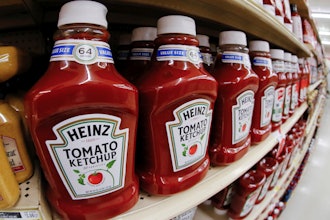RALEIGH, N.C. (AP) — A North Carolina appeals court on Tuesday set the stage for a court battle to decide whether the world's largest pork producer will keep paying for environmental projects as it promised 18 years ago or if its millions should go to public schools instead.
A divided state Court of Appeals resurrected a lawsuit challenging Smithfield Foods's 2000 agreement to pay up to $2 million a year for 25 years. Until now, successive state attorneys general Mike Easley, Roy Cooper and Josh Stein have largely decided who got the money.
Smithfield agreed in the 2000 deal to phase out open-air hog waste pits in the country's No. 2 pork producing state within five years. But the cesspools are still being used on hundreds of industrial-scale farms raising Smithfield's hogs. The company, now owned by a Chinese parent, maintains that no other waste-handling method is economically feasible in North Carolina despite years of research into finding alternatives.
Neighbors sued the company and its subsidiaries, claiming the pits are nuisances that harmed the use of their property. They have won nearly $550 million this year in judgments by juries in three federal lawsuits. Dozens more lawsuits are pending.
The appeals court panel ruled 2-1 that a trial is needed to decide if the payments are actually penalties for wrongdoing by Smithfield. The state constitution requires that schools get penalty payments.
"Whether these payments are penalties depends upon whether they were 'intended to penalize' the companies or 'imposed to deter future violations and to extract retribution,'" Judge John Tyson wrote on behalf of himself and Judge Philip Berger, citing language from earlier cases.
Judge Wanda Bryant dissented, arguing a Wake County Superior Court judge was right in dismissing the lawsuit last year after deciding the funds were paid under a voluntary agreement rather than a penalty.
Smithfield and then-Attorney General Easley agreed in 2000 that the Virginia-based company would provide up to $50 million over 25 years to protect and restore the state's environment. The company also would pay another $15 million to help develop waste-handling methods that could replace hog lagoons, according to the agreement.
The deal came after Hurricane Floyd caused dozens of hog waste pits to overflow in 1999, leaving a polluted mess. Smithfield also had paid one of the largest water-quality fines in state history after waste spills at two hog operations in eastern North Carolina.
That background makes it at least questionable that Smithfield and its five subsidiary companies agreed to fork out the money "to demonstrate good corporate citizenship by working towards better waste management solutions," as one of Easley's former state attorneys said in a sworn court statement.
"A genuine issue of material fact exists of whether the Agreement was motivated by a desire by the Companies to forestall, or forebear, any potential claims the Attorney General or (the state environmental enforcement agency) could have asserted against them," Tyson wrote.
Smithfield paid $29 million toward environmental improvements through 2016, said Laura Brewer, a spokeswoman for state Attorney General Josh Stein. Payments due for 2017 and 2018 were not made while the lawsuit was in process, she said.
The appeals court ruled that while a Republican activist who filed the lawsuit in 2016 as an aggrieved taxpayer didn't have grounds to sue, the school board in New Hanover County, which joined the case later, could pursue the revived litigation.






















